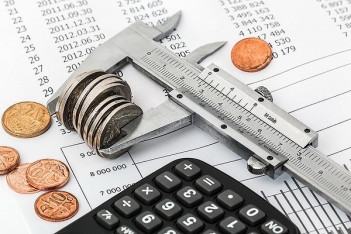lawyer, 23 years of experience in enforcement.
Taxation of non-resident income: lease/rent or royalties?
According to the notification of the State Tax Service of Ukraine, income received by a non-resident from leasing/renting with a source of origin in Ukraine is subject to taxation in accordance with the Tax Code of Ukraine. Specific rates and norms of such taxation are determined by subparagraph "g" of subparagraph 141.4.1 of clause 141.4 of Article 141 of the Code.
In accordance with the norms defined by subparagraph 141.4.2 of clause 141.4 of article 141 of the Code, natural persons - residents of Ukraine, including natural persons - entrepreneurs, independent professional persons and business entities (legal entities or natural persons - entrepreneurs) who have chosen a simplified taxation system. , as well as non-residents who carry out economic activities through a permanent representative office in Ukraine, are required to withhold 15 percent of the tax from any payment to a non-resident or his authorized representative from income originating in Ukraine (including payments made to non-resident accounts in the national currency). This tax is payable to the budget at the time of its payment, unless otherwise established by current international agreements between Ukraine and the states of the location of the recipients of payments, with the exception of income specified in subsections 141.4. 4 - 141.4.5 and 141.4.11 of this clause.
As stated in Clause 3.2 of Article 3 of the Code, in the event that an international agreement, the binding consent of which has been granted by the Verkhovna Rada of Ukraine, contains provisions different from those contained in this Code, the norms of the international agreement shall apply. priority and be realized.
From 2017 to 2023, a significant amount of UAH 13,100 million was exempted from taxation as lease income payments, in particular to non-residents registered in jurisdictions where the definition of "royalty" includes commissions related to the use of equipment.
A significant share of payments is made to companies registered in various countries, including the Republic of Cyprus (64%), Turkey (11%), Portugal (11%), Estonia (3%), Poland (3%), and several others.
In particular, within the framework of 27 conventions aimed at preventing double taxation, including such countries as Estonia, Poland, Lithuania, Latvia, Bulgaria, Brazil, the Czech Republic, Cyprus, Azerbaijan, Algeria, Vietnam, Egypt, Jordan, Iceland, Kazakhstan, Saudi Arabia, Libya, Morocco, Mexico, Mongolia, Pakistan, Singapore, Slovenia, Thailand, Turkey, Turkmenistan and Uzbekistan, the term "royalty" is defined in accordance with Article 12 of the Convention as a payment made for the use or permission of industrial, commercial or scientific equipment.
As stated in paragraph 2 of Article 3 of the Conventions, if a Contracting State applies them, any term not expressly defined in the Conventions shall be interpreted on the basis of the laws of that State in relation to the applicable taxes, unless the context indicates otherwise.
As stated in paragraph 1 of Article 31 of the Vienna Convention on the Law of International Treaties of May 23, 1969 (hereinafter - the Vienna Convention), it is necessary to interpret the contract sincerely, taking into account the ordinary meaning of the terms of the contract in their context, as well as the purpose and objectives of the contract. In addition, Article 32 of the Vienna Convention allows the use of additional methods of interpretation, such as the study of preparatory materials and the circumstances surrounding the conclusion of the agreement. In the case of conventions related to the avoidance of double taxation, these additional means of interpretation include the Commentaries on the OECD Model Tax Convention and the Commentaries on the UN Model Convention for the Avoidance of Double Taxation in Relations between Developed and Developing Countries (called the UN Model Convention.
In order to understand the definition of "royalty" set out in Article 12 of the Convention, which is consistent with Article 12, paragraph 3, of the UN Model Convention, it is important to consult the related commentaries.
As stated in paragraph 13.2 of the Commentaries to Article 12 of the UN Model Convention, the definition of industrial, commercial or scientific equipment is not limited to ships, aircraft, cars and other vehicles, but also covers a wide range of items such as cranes, containers, satellites, pipelines and cables etc.
Taking into account the information provided, when using the Convention in Ukraine to determine the classification of payment as "use or granting the right to use industrial, commercial or scientific equipment" it is necessary to interpret the term "industrial, commercial or scientific equipment" broadly, covering any assortment of machines, devices and tools
Therefore, Ukraine, exercising its rights to taxation in accordance with the Conventions, will require the payment of taxes within Ukraine for payments made by Ukrainian companies to foreign residents for the use or leasing of industrial, commercial or scientific equipment, including various means of transport, such as ships, aircraft, cars and cranes, as well as satellites, pipelines and cables (this list is not exhaustive). These payments are classified as royalties under Article 12 of the Conventions.
In the period from August 1, 2023 until the termination or abolition of martial law in Ukraine, provided for by the Decree of the President of Ukraine dated February 24, 2022 No. 64/2022 and approved by the Law of Ukraine No. 2102-IX, taxpayers who will correct errors in the manner specified in Article 50 of the Code, are exempted from the payment of penalties and penalties for understated tax obligations, provided for by subsection 69.38 of clause 69 of subsection 10 of chapter XX "Transitional provisions" of the Code.
Therefore, the DPS emphasizes to taxpayers that the voluntary clarification of the amounts of paid income tax on the income of non-residents will allow business entities to reduce the financial burden of fines and penalties that are charged during inspections.
In today's realities, tax lawyer consultation will be expedient in matters of business taxation, in connection with which the Legal Service "Consultant" will select a specialist to provide professional advice of a lawyer on tax issues, also on the service it is possible to receive a consultation of a tax lawyer is online consultation with a tax lawyer. A tax inspector lawyer free consultation with a tax lawyer from a tax lawyer, as well as form an effective legal position and prepare relevant documents on taxation issues.




































